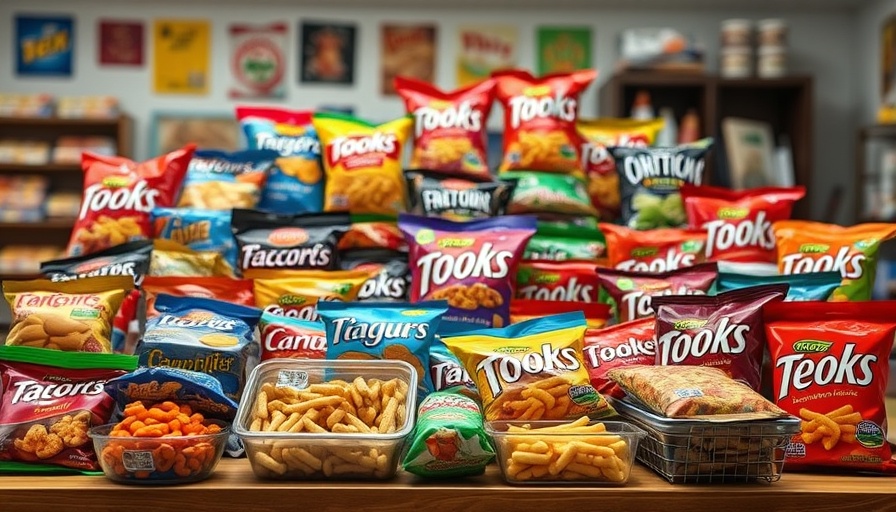
Understanding the Risks of Ultra-Processed Foods
In today's fast-paced world, the convenience of ultra-processed foods looms large in our dietary choices. Whether it’s grabbing a quick meal on the go or indulging in a sugary snack while binge-watching our favorite show, these foods have become a staple in many diets. However, recent research presented at the ACC Asia 2025 has raised serious concerns about the health implications of these foods, urging us to rethink our eating habits.
What Are Ultra-Processed Foods?
Ultra-processed foods encompass a wide variety of items, including sugar-sweetened beverages, packaged snacks like potato chips and cookies, and commercially produced breads. Defined as industrially manufactured food products that have undergone extensive processing, these foods often contain high levels of sugar, salt, and unhealthy fats, along with numerous additives that can have negative health effects.
The Health Risks Associated with Ultra-Processed Foods
The latest findings from a systematic review of 41 studies involving over 8 million adults reveal alarming associations between ultra-processed food consumption and serious health issues. Each additional 100 grams consumed per day raised the risk of hypertension by 14.5%, cardiovascular events by 5.9%, and even cancer by 1.2%. Moreover, researchers noted increased risks of digestive diseases and all-cause mortality, highlighting how prevalent these products are in contributing to declining health.
Understanding the Mechanisms Behind the Risks
Dr. Xiao Liu from Sun Yat-sen Memorial Hospital explains that the consumption of ultra-processed foods could lead to negative health outcomes via several mechanisms. These include disruption of blood lipid profiles, alteration of gut microbiota, and an increase in systemic inflammation—all of which could exacerbate chronic health conditions, such as obesity and diabetes. These findings point to a pressing need for individuals to reconsider what they consume.
Real-Life Implications and Relevance
The implications of this research extend beyond individual health; they reflect broader trends in public health. As communities face rising rates of obesity and chronic illness, understanding the role of ultra-processed foods is crucial. For many, switching to whole, minimally processed alternatives could foster better health, support gut health, and enhance overall wellness.
How to Make Healthier Choices
Transitioning away from ultra-processed foods doesn’t have to be overwhelming. Simple swaps can lead to significant changes in diet quality. Consider opting for fresh fruits and vegetables, whole grains, and minimally processed proteins. Incorporating immune-boosting foods, like garlic and leafy greens, can also enhance your meals. Pairing these natural ingredients can create satisfying and nutritious dishes that contribute to improved health outcomes.
Actionable Steps to Improve Your Diet
1. **Educate Yourself**: Learn to read food labels carefully. Look for whole ingredients and limit intake of additives. 2. **Meal Prep**: Plan your meals in advance to avoid the temptation of ultra-processed options. By preparing meals, you can control ingredients and freshness. 3. **Mindful Eating**: Take the time to enjoy your meals without distractions. Being present fosters better digestion and appreciation for food’s nutritional value.
Your Health is Worth It
Reflecting upon this research, it becomes clear that taking charge of personal health is possible through informed choices. Reducing reliance on ultra-processed foods can deliver significant health benefits that support longevity and well-being. As you consider your dietary habits, remember that every small step counts toward better health outcomes.
If you’re interested in transforming your lifestyle toward a more balanced and healthier way of living, start today! Explore natural health tips, engage with local wellness communities, and experiment with new, healthy recipes to create a sustainable routine. Your future self will thank you for the positive changes you embrace now.
 Add Element
Add Element  Add Row
Add Row 



 Add Row
Add Row  Add
Add 


Write A Comment